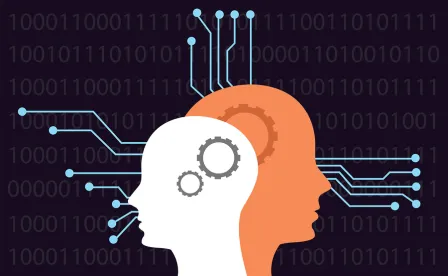Through the help of artificial intelligence (“AI”), your smartphone can act as a GPS that adjusts its recommended route in real-time based on emerging traffic patterns. By adapting to changes in traffic, the smartphone is able to redirect a driver to a faster route. Now imagine these adaptive capabilities in the legal field. With the potential of AI growing rapidly, the use of AI technology, though still in its infancy, is gaining traction with law firms, helping to provide better outcomes for clients, faster. According to a recent survey by management consulting firm Altman Weil, law firms are beginning to explore AI’s potential. While only 7.5% of surveyed law firms are currently making use of AI, nearly a third of the surveyed law firms have begun to explore opportunities to use AI as a legal tool. The capabilities of AI, whether currently available or on the horizon, suggest that both lawyers and clients can benefit from the legal field’s embrace of AI. This is particularly true with respect to the use of AI in the many phases of contract review: contract creation, contract analysis, and contract due diligence.
In the digital age, legal professionals handle increasingly large volumes of information, whether it be discovery documents from a client or an attorney’s own library of drafts and templates. AI uses its data analytics capabilities to organize and structure vast reams of information. As such, law firms can use AI to quickly sift through this information, analyze the underlying data with the document, and identify trends from this data. Specifically, AI can take this structured understanding of data to aid in the contract review process.
AI is expected to play an increasing role in contract creation. While many law firms rely on templates for initial drafts of a contract, there is no one-size-fits-all template for the intricacies of each situation. AI systems can scan a law firm’s contract library and generate spreadsheet reports sorting and categorizing the underlying data within the contract library. For example, AI can organize contracts by type, currency, language, and location. Prognosticators indicate that AI can utilize its compiled data to assist in the drafting of specialized contracts that are better tailored to the specifics of the deal or transaction. Thus, if an attorney needs a specific type of contract in a particular jurisdiction, an AI system can help build this individual contract by identifying and compiling important sections and clauses that are necessary for that contract or jurisdiction. In addition, AI can locate drafting errors (like vague language) in contract drafts, alerting attorneys to problematic clauses at the early stages of the drafting process.
In the area of contract review, AI systems can engage in legal issue spotting. Drawing from the data contained in a law firm’s library of contracts, the AI system can tag relevant clauses from a particular contract and analyze fairness and risk, alerting the lawyer to potential pitfalls that may be latent within the contract. For example, a lawyer may know of a certain clause that contains a particular risk for clients — say, for example, a weak or lop-sided limitation-on-liability clause. The lawyer can train the machine to identify variations of this clause as “high risk.” When a proposed draft contract contains a weak limitation-on-liability clause that leaves a client susceptible to liability, the AI can identify and warn attorneys.
AI is also being used to engage in contract due diligence, aiding the parties in the adherence of contractual terms. In this arena, AI can act as a deadline watchdog, recognizing and “understanding” the deadlines and obligations within a contract. AI can use that understanding to alert parties to certain deadlines promulgated within a contract to ensure that the requirements and obligations are completed in a timely fashion. For example, AI can scan the content of a contract and notify the participants when the contract is about to expire, enabling the parties to renew or extend their agreement, if mutually agreeable, and avoid having the contract lapse.
AI will not completely eliminate the need for lawyers anytime soon, if ever, but it is increasingly becoming an indispensable tool for lawyers, and the benefits of AI products are highest when used in conjunction with lawyers. AI “learns” through experience: with each additional data entry and through repeated uses, the AI becomes “smarter.” So to achieve its full potential, AI needs to be taught. If the computer makes a mistake, it requires a human to show the machine its error and correct the miscalculation. Thus, AI is not a competitor to an experienced legal professional; it is a collaborator. By helping lawyers sift through large amounts of data, AI empowers lawyers to provide better outcomes for their clients – faster. As such, the legal field stands to benefit from an embrace of AI. If the recent Altman Weil survey is any indication, law firms are starting to take notice.



 />i
/>i

